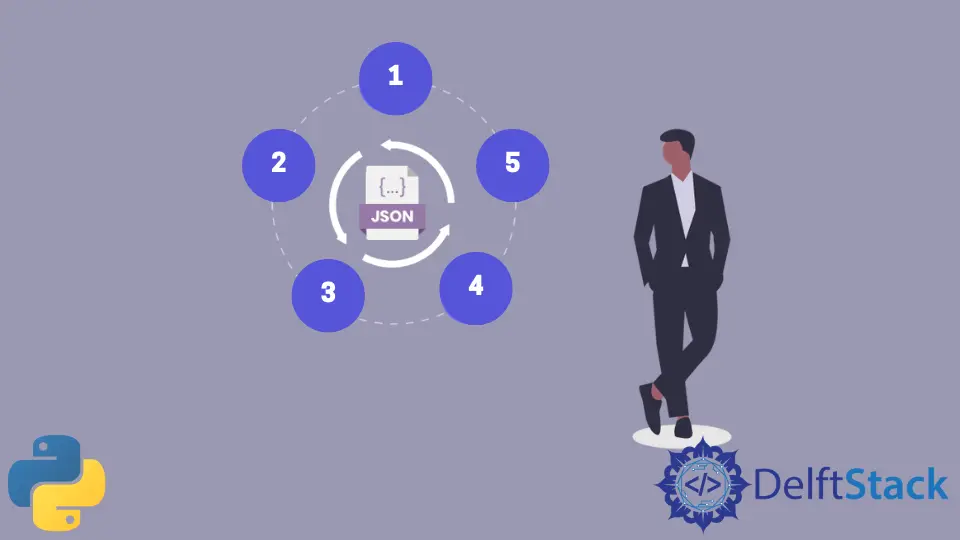在 Python 中遍歷 JSON 物件
Vaibhhav Khetarpal
2021年3月21日
Python
Python JSON

JSON (JavaScript Object Notation) 是一種流行的資料格式,用於儲存和交換資料。
本教程將討論在 Python 中迭代 JSON 物件的方法。
在 for 迴圈的幫助下使用 json.loads() 來迭代 Python 中的 JSON 物件
Python 提供了一個內建包 json,可以將其匯入以使用 JSON 表單資料。在 Python 中,JSON 以字串形式存在或儲存在 JSON 物件中。
我們使用 json.loads(str) 將字串解析為字典。此外,我們在整個字典的迭代過程中使用 for 迴圈。
以下程式碼實現了 json.loads() 函式和迴圈遍歷 JSON 物件的迴圈。
import json
jsonstring1 = '{"k1": "v1", "k2": "v2"}'
# Load JSON string into a dictionary
json_dicti = json.loads(jsonstring1)
# Loop along dictionary keys
for key in json_dicti:
print(key, ":", json_dicti[key])
輸出:
k1 : v1
k2 : v2
請注意,當執行 json.loads() 命令而不是 JSON 物件時,將返回 python 字典。
如果它是包含 JSON 物件的檔案,則可以使用 json.load() 函式來讀取該檔案。以下程式碼使用 json.load() 函式來解析包含 JSON 物件的檔案。
假設名為 man.json 的檔案包含此資料。
{"fullname": "Tom",
"languages": ["English", "German"]
}
解析此檔案的程式碼如下。
import json
with open("man.json") as a:
dict1 = json.load(a)
print(dict1)
輸出:
{'fullname': 'Tom', 'languages': ['English', 'German']}
這裡使用 open() 函式來讀取 JSON 檔案。同樣在這裡,我們得到了一個字典 dict1。之後,可以在字典上完成迭代過程。
Enjoying our tutorials? Subscribe to DelftStack on YouTube to support us in creating more high-quality video guides. Subscribe
Vaibhhav is an IT professional who has a strong-hold in Python programming and various projects under his belt. He has an eagerness to discover new things and is a quick learner.
LinkedIn